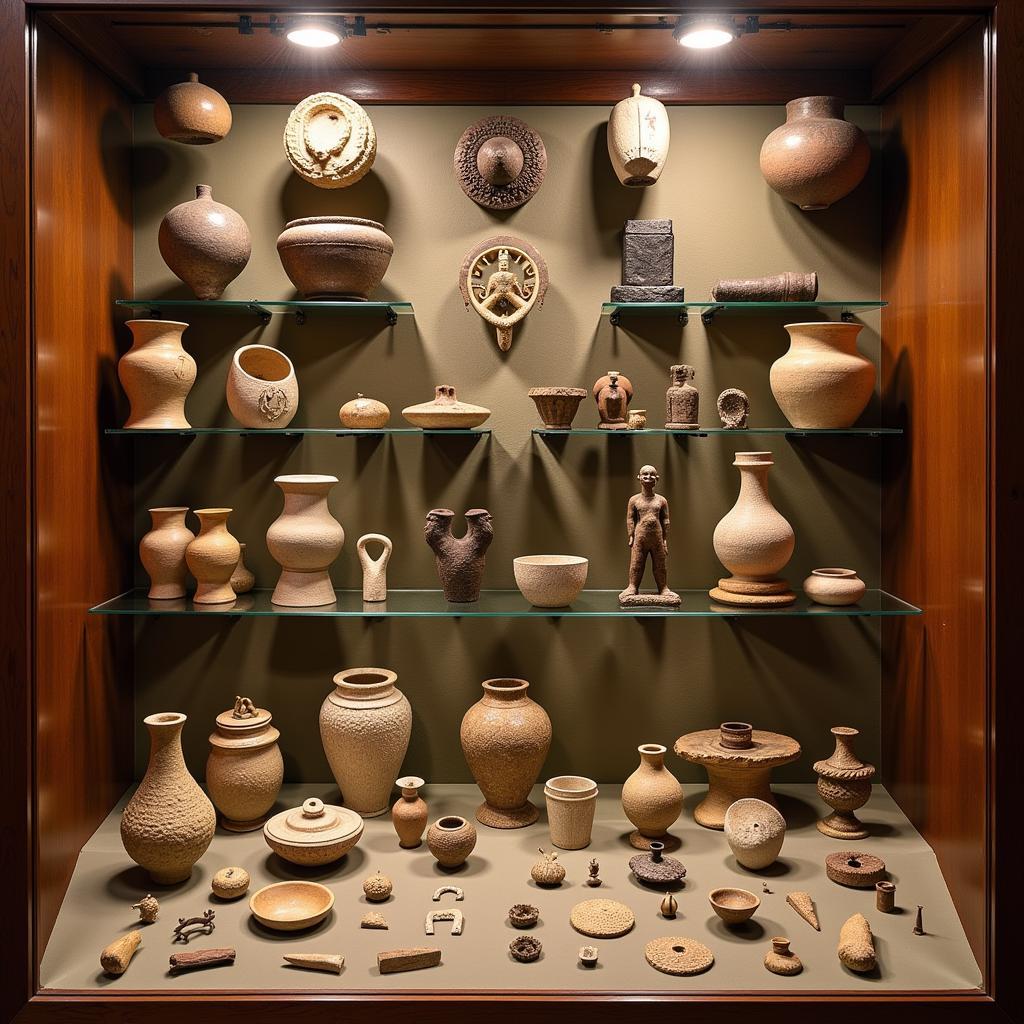Uncovering the Past: African Archaeology Day at UCL
African Archaeology Day at UCL offers a fascinating glimpse into the rich and diverse history of the African continent. This event highlights the groundbreaking research and discoveries being made in the field of African archaeology, showcasing the importance of understanding Africa’s past to shape its future.
Exploring African Archaeology Day: A Journey Through Time
African Archaeology Day at UCL is more than just a celebration; it’s a platform for knowledge sharing, cultural exchange, and fostering a deeper appreciation for the complexities of African history. The event brings together leading archaeologists, researchers, students, and enthusiasts to discuss the latest findings, innovative methodologies, and the challenges faced in the field.
What Makes African Archaeology Day at UCL Unique?
UCL’s commitment to African archaeology sets it apart. The university’s Institute of Archaeology boasts a world-renowned faculty with extensive experience in African research. African Archaeology Day provides a unique opportunity to interact with these experts and learn about their groundbreaking work firsthand. The event often features interactive exhibits, workshops, and lectures covering a wide range of topics, from ancient civilizations to the impact of colonialism on archaeological heritage.
Delving Deeper: Key Themes in African Archaeology
African archaeology is a vast and multifaceted field, encompassing a rich tapestry of cultures, time periods, and geographical regions. African Archaeology Day at UCL often focuses on specific themes, providing a deeper understanding of particular aspects of the continent’s past. These themes can include the development of early agriculture, the rise and fall of ancient kingdoms, the impact of trade routes, and the complexities of cultural interaction.
Unveiling the Mysteries of Ancient African Civilizations
One of the most captivating aspects of African archaeology is the study of ancient civilizations. From the powerful empires of Kush and Aksum to the sophisticated city-states of the Swahili Coast, African history is filled with stories of innovation, resilience, and cultural exchange. African Archaeology Day at UCL provides a platform to explore these civilizations, challenging preconceived notions and shedding light on the significant contributions of Africa to world history.
 Ancient African Artifacts Displayed at UCL
Ancient African Artifacts Displayed at UCL
The Future of African Archaeology: Preserving the Past for Future Generations
Preserving archaeological heritage is crucial for understanding and appreciating the rich tapestry of human history. African Archaeology Day at UCL emphasizes the importance of protecting archaeological sites from looting, environmental degradation, and the impacts of development. The event often features discussions on ethical archaeological practices, community engagement, and the role of technology in preserving fragile historical remains.
Community Engagement: Working with Local Communities to Protect Heritage
Collaboration with local communities is essential for the success of archaeological projects in Africa. African Archaeology Day at UCL often highlights the importance of working with local stakeholders to ensure that archaeological research is conducted ethically and respectfully. Community involvement can range from consulting with local leaders to providing training opportunities for local residents in archaeological methods and conservation techniques.
“Engaging with local communities is not just good practice, it is essential for the long-term preservation of archaeological heritage,” says Dr. Abeni Okoro, a renowned archaeologist specializing in West African archaeology. “Local knowledge and perspectives are invaluable in understanding the significance of sites and ensuring their protection for future generations.”
Conclusion: Celebrating the Legacy of African Archaeology
African Archaeology Day at UCL provides a vital platform for exploring the fascinating history of the African continent. From uncovering the mysteries of ancient civilizations to addressing the challenges of preserving archaeological heritage, the event fosters a deeper appreciation for the richness and diversity of African cultures. By attending African Archaeology Day at UCL, you embark on a journey through time, gaining invaluable insights into the past and contributing to the preservation of Africa’s cultural legacy for future generations.
FAQs
- When is African Archaeology Day at UCL usually held? The date varies, so check the UCL Institute of Archaeology website for the latest information.
- Is African Archaeology Day open to the public? Yes, the event is typically open to everyone.
- Are there any costs associated with attending? Attendance is often free, but some workshops or special events may have fees.
- How can I get involved in African archaeology? UCL offers various degree programs and research opportunities in archaeology.
- What are some important recent discoveries in African archaeology? Check out the UCL Institute of Archaeology website and publications for updates on recent research.
- Where can I find more information about African archaeology online? Numerous resources are available, including the African Archaeological Review and the British Institute in Eastern Africa website.
- Are there opportunities to volunteer on African archaeological projects? Check with organizations like the British Institute in Eastern Africa or contact UCL researchers directly.
Need support? Contact us at:
Phone: +255768904061
Email: kaka.mag@gmail.com
Address: Mbarali DC Mawindi, Kangaga, Tanzania.
Our customer service team is available 24/7.


